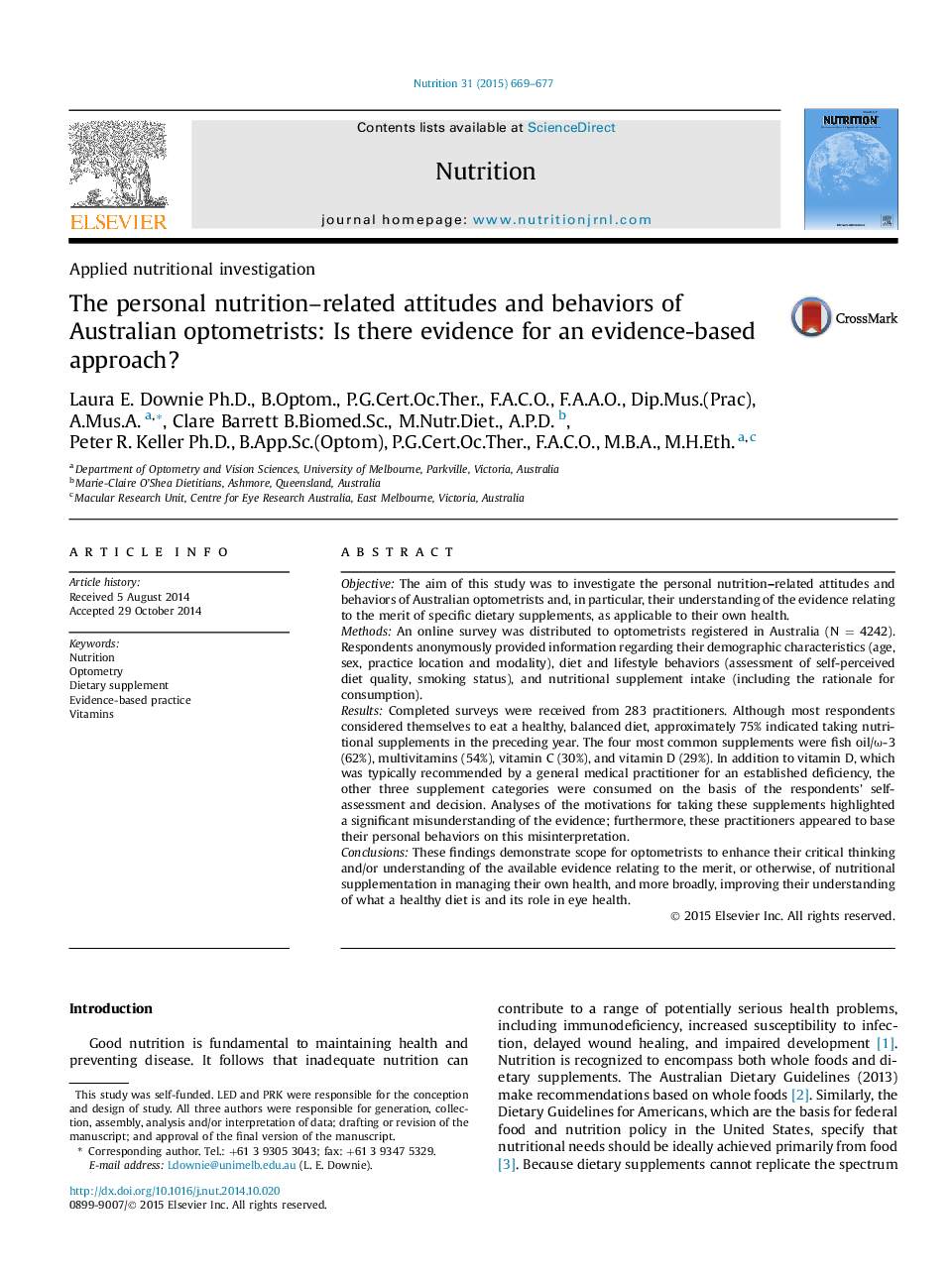| Article ID | Journal | Published Year | Pages | File Type |
|---|---|---|---|---|
| 6089065 | Nutrition | 2015 | 9 Pages |
â¢This study evaluated the dietary attitudes and behaviors of Australian optometrists.â¢Many dietary practices were inconsistent with evidence-based recommendations.â¢There is scope to enhance the use of evidence in the health habits of optometrists.
ObjectiveThe aim of this study was to investigate the personal nutrition-related attitudes and behaviors of Australian optometrists and, in particular, their understanding of the evidence relating to the merit of specific dietary supplements, as applicable to their own health.MethodsAn online survey was distributed to optometrists registered in Australia (N = 4242). Respondents anonymously provided information regarding their demographic characteristics (age, sex, practice location and modality), diet and lifestyle behaviors (assessment of self-perceived diet quality, smoking status), and nutritional supplement intake (including the rationale for consumption).ResultsCompleted surveys were received from 283 practitioners. Although most respondents considered themselves to eat a healthy, balanced diet, approximately 75% indicated taking nutritional supplements in the preceding year. The four most common supplements were fish oil/Ï-3 (62%), multivitamins (54%), vitamin C (30%), and vitamin D (29%). In addition to vitamin D, which was typically recommended by a general medical practitioner for an established deficiency, the other three supplement categories were consumed on the basis of the respondents' self-assessment and decision. Analyses of the motivations for taking these supplements highlighted a significant misunderstanding of the evidence; furthermore, these practitioners appeared to base their personal behaviors on this misinterpretation.ConclusionsThese findings demonstrate scope for optometrists to enhance their critical thinking and/or understanding of the available evidence relating to the merit, or otherwise, of nutritional supplementation in managing their own health, and more broadly, improving their understanding of what a healthy diet is and its role in eye health.
